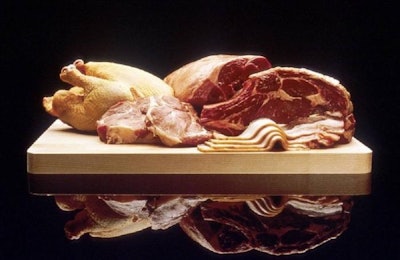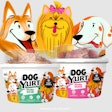
-
Consumers demand high meat pet foods.
-
Do dogs really need high meat diets?
-
Myths persist about extruding high meat pet foods.
-
Novel proteins are growing in popularity.
-
Many options exist for novel proteins.
To meet customers' demands, pet food manufacturers continue to increase the number of high-protein pet foods. As meat-rich pet foods grow in popularity and availability, various controversies and questions confront pet food manufacturers.
Pet owners want high meat foods. This demand results partly because of a belief that dogs should eat like wolves, similarly to the human trend toward paleo-diets. However, some question the science behind that trend, especially in dog food and treats. Dogs have evolved during domestication and they may be adapted to be omnivores, eating both meat and plants. On the other hand, cats are biologically prepared to be carnivores only, just like their wild cousins.
Another human trend that has crossed-over to the pet food industry is the use of unconventional meat sources, like alligator, ostrich, insects and Asian carp. These novel protein sources can be help pets with allergies and gastrointestinal sensitivities to beef, chicken or pork. Since pets may not be bothered by these novel meats, they can still get high levels of protein from their food.
Making these high protein pet foods raises questions as well. A number of misconceptions continue to influence pet food makers’ understanding of extruding high meat products. As more manufacturers make high protein foods, more education may be needed to dispel these myths.
Learn to make high meat pet foods
Pet food professionals can learn how to incorporate novel and exotic proteins into pet treats and food during the Petfood Innovation Workshop and Kansas State University (KSU) Pet Food Experience September 13-15. Held on KSU’s main campus in Manhattan, Kansas, USA, this hands-on event provides an immersive experience in creating unique new pet food products that can meet today’s demand for high meat and a focus on protein.
Pet food industry ingredient and technology suppliers will lead participants through making pet treats and other pet food products with novel proteins such as stabilized rice bran, pork protein powder, spray-dried plasma, exotic animals and vegetables.
On September 14, the KSU Pet Food Experience will feature the university’s faculty, students and other experts presenting their latest research on pet jerky treat safety, sorghum-based pet food, comparative species resistant starch nutrition and other topics.
Registration is currently open for both Petfood Innovation Workshop and the KSU Pet Food Experience.

















